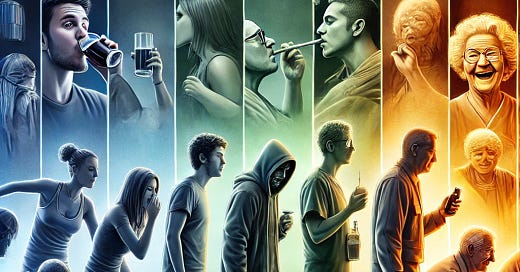The Complex Dichotomy of the Spectrum
Why We Should Stop Viewing Actions as Simply Good or Evil and Embrace Context and Practicality
“This dichotomy offers a realistic way of viewing the world and brings our intention into play.”
Introduction
Recently, I reconnected with some of my closest friends for a few days. These are friends I’ve known for over 15 years, and we were fortunate enough to gather in the same city for the first time in about six or seven years. It was a homecoming that felt long overdue.
So, what did three married men, temporarily away from their families, do during this rare reunion? We spent most of our time talking and drinking.
Our usual mode of communication had been limited to text messages, so being able to converse face-to-face was invigorating. We talked endlessly—about the world, sports, politics, the election, philosophy, social constructs, and religion.
The conversations were continuous, only paused when we were asleep or out enjoying the nightlife. Admittedly, there was a lot of drinking. By th…
Keep reading with a 7-day free trial
Subscribe to Unorthodoxy to keep reading this post and get 7 days of free access to the full post archives.





